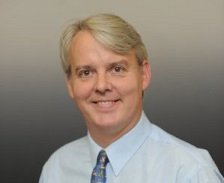The 10,000 Hour Rule: What It Takes To Be A Communications Expert
 By Simon Erskine Locke, Founder & CEO of CommunicationsMatchMalcolm Gladwell’s excellent book “Outliers” popularized what has become known as the 10,000 Hour Rule. Drawing upon research by Anders Ericsson and Robert Pool, he highlights that it takes approximately 10,000 hours to become a master at something. That translates into roughly 3 hours every day for 10 years.In a Salon article adapted from their book “Peak: Secrets from the New Science of Expertise” published last year, Ericsson and Pool acknowledge the power of Gladwell’s simple framing of what it takes to be a master, but say that 10,000 hours isn’t really a magical number.They note that by simply devoting this specific amount of time, not everyone will become a master violinist. Which makes sense. What they argue is mastery of something takes both effort and training the right way.
By Simon Erskine Locke, Founder & CEO of CommunicationsMatchMalcolm Gladwell’s excellent book “Outliers” popularized what has become known as the 10,000 Hour Rule. Drawing upon research by Anders Ericsson and Robert Pool, he highlights that it takes approximately 10,000 hours to become a master at something. That translates into roughly 3 hours every day for 10 years.In a Salon article adapted from their book “Peak: Secrets from the New Science of Expertise” published last year, Ericsson and Pool acknowledge the power of Gladwell’s simple framing of what it takes to be a master, but say that 10,000 hours isn’t really a magical number.They note that by simply devoting this specific amount of time, not everyone will become a master violinist. Which makes sense. What they argue is mastery of something takes both effort and training the right way. How does this relate to communications?Simply put, it takes a huge amount of time and effort to become an expert in the increasingly complex and specialized areas of communications required to achieve a company’s marketing goals. In addition to traditional PR skillsets, today we arguably also need mastery in areas including analytics, SEO, influencer, content, digital and email marketing.As communications experts, we have developed skills through years of training and doing. Over time we become masters in specific fields and are hopefully recognized by peers and clients for our unique knowledge.In a rapidly changing communications world, the 10,000 hour rule reminds us that we cannot sit on our laurels. We have to work to stay current and invest in our continued professional development.We also need to keep in mind Socrates, who said, “The only true wisdom is in knowing you know nothing.”Knowing our limitations is a healthy starting place for companies looking to hire communications experts with the experience to do the job right. It’s equally valuable for agencies and consultants who need to look at their own capabilities and acknowledge what they are, and are not, a master of. Most of us want to believe we can do everything. Having the humility to recognize what it takes to be an expert is a powerful driver of continued learning and improvement in our ourselves and profession. [author]About the Author: Simon Erskine Locke is Founder & CEO of CommunicationsMatchTM a global communications-focused matching search engine. With more than 4,600 U.S. and International agencies and professionals listed, it is a go-to resource for businesses seeking communications services providers with expertise in areas including: public relations, internal communications, government affairs, investor relations, content marketing, social media, SEO, website development, photography and video. Prior to founding CommunicationsMatch, Locke held senior Corporate Communications roles at Prudential Financial, Morgan Stanley and Deutsche Bank and founded communications consultancies.[/author]
How does this relate to communications?Simply put, it takes a huge amount of time and effort to become an expert in the increasingly complex and specialized areas of communications required to achieve a company’s marketing goals. In addition to traditional PR skillsets, today we arguably also need mastery in areas including analytics, SEO, influencer, content, digital and email marketing.As communications experts, we have developed skills through years of training and doing. Over time we become masters in specific fields and are hopefully recognized by peers and clients for our unique knowledge.In a rapidly changing communications world, the 10,000 hour rule reminds us that we cannot sit on our laurels. We have to work to stay current and invest in our continued professional development.We also need to keep in mind Socrates, who said, “The only true wisdom is in knowing you know nothing.”Knowing our limitations is a healthy starting place for companies looking to hire communications experts with the experience to do the job right. It’s equally valuable for agencies and consultants who need to look at their own capabilities and acknowledge what they are, and are not, a master of. Most of us want to believe we can do everything. Having the humility to recognize what it takes to be an expert is a powerful driver of continued learning and improvement in our ourselves and profession. [author]About the Author: Simon Erskine Locke is Founder & CEO of CommunicationsMatchTM a global communications-focused matching search engine. With more than 4,600 U.S. and International agencies and professionals listed, it is a go-to resource for businesses seeking communications services providers with expertise in areas including: public relations, internal communications, government affairs, investor relations, content marketing, social media, SEO, website development, photography and video. Prior to founding CommunicationsMatch, Locke held senior Corporate Communications roles at Prudential Financial, Morgan Stanley and Deutsche Bank and founded communications consultancies.[/author]

